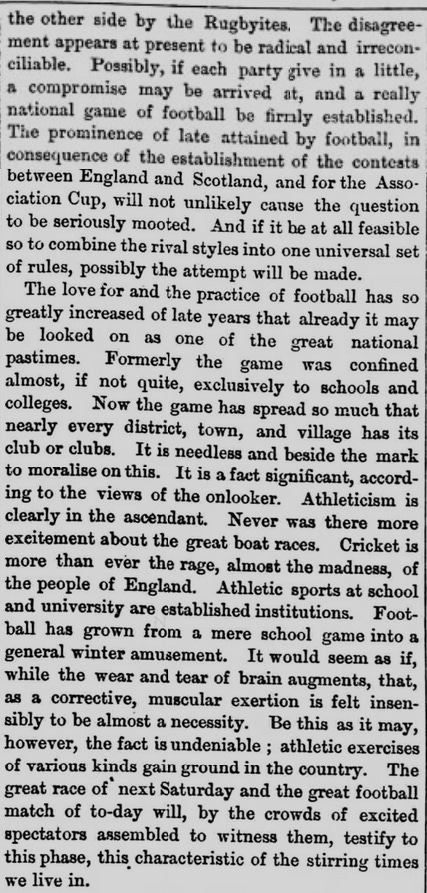The First FA Cup Final
The first FA Cup final was played at the Kennington Oval, a cricket ground located in London, on March 16, 1872.
The participants were Wanderers and the Royal Engineers. Wanderers had advanced to the final because Queen’s Park in Glasgow could not afford the cost of traveling back to London for a replay. Royal Engineers, meanwhile, beat Crystal Palace 3-0 in a replay to reach the final.
And, as you’ve probably guessed, the sport was a lot different in those days. Differences between the game in 1871-72 and today’s game include:
The offside rule, which called for 3 opponents to be between an attacking player and the opposing goal (as opposed to 2 today);
Any ball going behind the goal line would be a goal kick regardless of which team touched the ball (there was no corner);
Teams would change sides with every goal scored;
There were no free kicks at all. Handling the ball was no longer allowed (the free catch was removed in 1870); however, it’s not clear that there was any punishment for hand ball;
Throw-ins were given to the first player to touch the ball after it went out of play.
There were other obvious differences. There was no substitution until 1858, for example. Red and yellow cards didn’t come around until 1970. Penalties didn’t become a thing until 1891. And, finally, there was no referee; the game seems to have been officiated by two “umpires,” though they were not specified in the rules.
The term “football” itself still referred to both the association game and rugby, which is obvious from this preview article:
The split between the two sports is especially interesting when you consider what a strong influence the rugby rules had on the earliest days of association football.
There wasn’t much coverage of the match itself. The Morning Post seems to have been the only publication to offer a contemporary newspaper report:
There was an article the next day in Sheffield:
And there was a brief mention in The Glasgow Daily Herald as well:
And so the first cup final passed by — fairly obscure in its own day.









